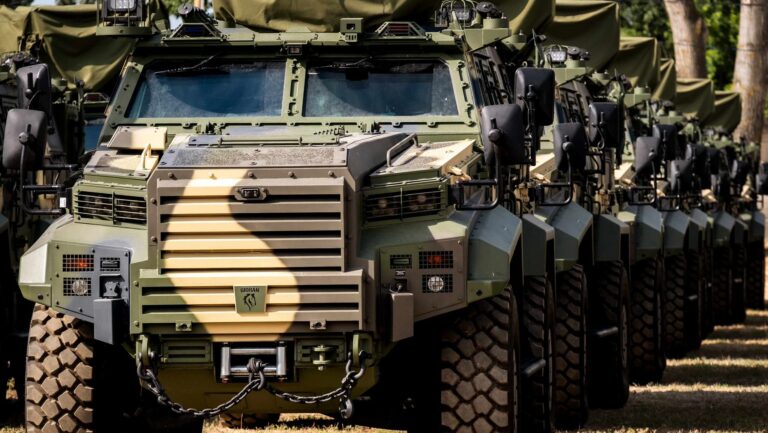An intercepted drone used by Hezbollah in a recent attack on Israel was found to contain components manufactured by a German company. This raises serious questions about the enforcement of export controls. The drone, which crashed near the Israel–Lebanon border, was reportedly equipped with an engine made by 3W-Modellmotoren Weinhold GmbH, a German firm specializing in small, high-performance engines typically used in model aircraft and drones.
The discovery came in the wake of heightened hostilities between Hezbollah, a militant group based in Lebanon, and Israel. As we reported earlier, on 25 August Hezbollah unleashed an attack involving hundreds of rockets and drones against northern Israel, targeting both military bases and civilian areas. Despite the intensity of the exchange, no damage or casualty was reported from the Israeli side as the country’s sophisticated air defence systems intercepted a significant number of Hezbollah’s missiles and drones.
As Hungarian Jewish news website Neokohn reported, upon examining the wreckage, Israeli defence analysts identified some components as being of German origin, namely the 3W-International. It’s yet unknown how components produced by a reputable German company found their way into the hands of Hezbollah.
Dear German friends: this Hezbollah Deutsche drone engine crashed this morning over Kibbutz Gonen in the upper Galilee. Not Staatsräson at all… pic.twitter.com/jqReWjlfq7
— Dov Gil-Har (@DovGilHar) August 25, 2024
In response to a query by Israeli i24NEWS, Kai Weinhold, the managing director of 3W, said that the company ‘did not sell any motors or technology to Iran or Hezbollah,’ but that ‘the engine shown in the pictures looks like an engine manufactured by 3W Professional GmbH. Without knowing the serial number of the engine, I can’t say this with absolute certainty.’
‘It is terrible that our engines appear to be being used by terrorist organizations for such acts,’ he noted, adding:
‘Unfortunately, we cannot control the resale of our products and cannot protect ourselves against them being resold for terrorist and criminal purposes.
Our engines pose no danger unless they are abused to do such terrible things.’
Germany’s Export Controls under Scrutiny
The incident has renewed discussions about the role of private companies in international conflicts, especially those based in countries with strict arms export regulations such as Germany.
Germany has some of the most stringent export control laws in the world, especially concerning dual-use technologies that can be utilized for both civilian and military purposes. The discovery of German-manufactured parts in Hezbollah’s arsenal raises troubling questions about the effectiveness of these regulations.
‘Before Hezbollah’s reprisal against Israel this weekend, 3W was already on notice that its parts have wound up in drones from Iran’s proxy and partner network,’ Jason Brodsky, the policy director for the US-based think tank United Against Nuclear Iran (UANI), told i24NEWS. ‘Downed Houthi drones have also featured 3W parts. There needs to be better due diligence and export restrictions on these parts coming from Europe. Knowing your customer’s customer is absolutely vital.’
Germany, as a nation with a strong commitment to non-proliferation and a firm stance against terrorism, it is likely to take this incident very seriously.
It’s Not Just Germany
Earlier this year in July three people were arrested in Spain and one more in Germany on suspicion of belonging to a network that supplied the Hezbollah terrorist organization with parts to build kamikaze drones that would have been used in attacks in northern Israel.
Authorities believe Hezbollah may have built several hundred drones from components acquired by Spanish companies run by Lebanese nationals, including electronic guidance components, propulsion propellers, gasoline engines, more than 200 electric motors and materials for the fuselage, wings and other drone parts.
International Security Implications
These incidents also highlight the limitations of national export control mechanisms in the face of increasingly complex global supply chains. Experts argue that while export controls are necessary, they are often insufficient in a globalized world where components can change hands multiple times before reaching their final destination.
Non-state actors or countries under strict sanctions also often use commercially available technology to make high-tech weapons and conduct sophisticated attacks. This trend complicates efforts to monitor and control the flow of dual-use goods that can be repurposed for warfare.








